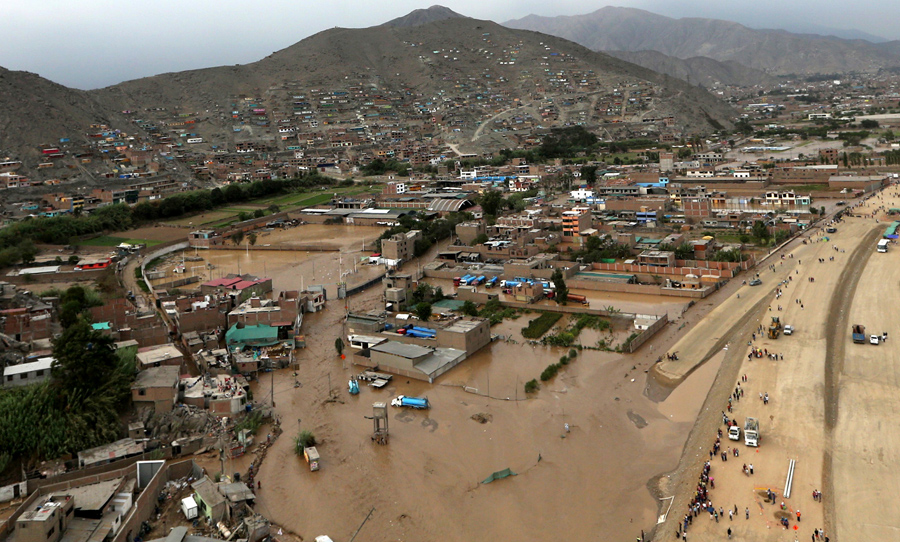LIMA, March 24 (Xinhua) -- Erika Antonia Ramirez was asleep as usual at midnight Tuesday. But her slumber was quickly interrupted by yells of "a mudslide is coming."
Ramirez, along with her children and husband, jumped out of bed and left their home. It was about 1:00 a.m. (0600 GMT) in the morning.
Murky waters soon filled her humble home, located at the foot of a hill in the Peruvian coastal town of Huarmey, as she and her family and other residents headed for higher ground.
"We tried to protect our home. We filled sacks with sand, but it was impossible," Ramirez told Xinhua, adding that "the mudslide entered all the houses."
Huarmey, known for its charming sun-splashed beaches, was inundated by muddy floodwater earlier this week and is now slowly recovering.
Located in the northern Ancash region, Huarmey is one of the towns hardest hit by torrential rains unleashed since December by the so-called coastal El Nino phenomenon, which has killed 85 people, injured 270 and left 20 missing.
Ramirez's neighborhood, called Victoria, is home to about 1,000 people, who all had to spend the next two nights atop the hill, with nothing to use as shelter.
"We went to the hill, where we slept all night. It is horrible, terrible. We all slept on the hill in the first and second nights. In the third night, as it was a little calmer, we went back down," said Ramirez.
The homes they left behind are still filled with mud, and possibly at risk of collapsing.
"What's urgent are tents, mattresses, clothes, food and water to survive," she said.
The situation is aggravated by the lack of electricity, since the local plant was also flooded.
"We don't have light. We don't have anything. We don't have a way to communicate with each other," said Ramirez.
Already homeless, the children have also been left without a school, which like many others in the city, was closed due to damage.
Manuel Perez Vera, who lives in the Laguna district of town, has been trying to salvage a few of his belongings, although damaged by the sustained flooding.
"On Wednesday night, past midnight, the waters came to about my neck," he said.
"The whole house, since it is made of adobe, is useless. We recovered several things, but the rest stayed," said Perez, as he picked through mud and water.
"As you can see, everything here is inundated. Look at how far the water reached, almost to half of the homes. Only a few things have been saved," said Perez, who also survived the flooding by heading for the hilltops.
The fetid smell of standing water, mixed with the stench from broken sewage pipes and rotting animal carcasses, lingers in the air.
The rains have affected scores of towns along coastal Peru, where communities are struggling to recover.
According to the National Civil Defense Institute, around 800,000 people have been left homeless.
While humanitarian aid is arriving from other countries, recovery efforts will need some time given the magnitude of the disaster.
